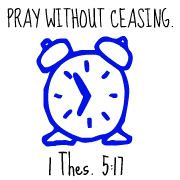Questions 56 to 66
To help put in perspective man’s place in the scheme of the Divine plan; this time we look at our role in creation, how we relate to God and other men, our uniqueness as male or female, how we consist of a body and soul and lastly, the significance of suffering.
Q. 56
I thought we would start off with some poetry;
Motherhood
The most important person on earth is a mother. She cannot claim the honor of having built Notre Dame Cathedral. She need not. She has built something more magnificent than a cathedral — a dwelling for an immortal soul, the tiny perfection of her baby’s body.
The angels have not been blessed with such a grace. They cannot share in God’s creative miracles to bring new saints to Heaven. Mothers are closer to God, the creator, than any other creature. God joins forces with mothers in performing this act of creation.
What in God’s good world is more glorious than this: to be a mother. – (Joseph Cardinal Mindszenty)
Yes! To honor God for the gift of human life we must respect every life and have a special place for those to who it is entrusted; here from Evangelium Vitae n. 35,
“What is man that you are mindful of him, and the son of man that you care for him?”, the Psalmist wonders (Ps 8:4). Compared to the immensity of the universe, man is very small, and yet this very contrast reveals his greatness: “You have made him little less than a god, and crown him with glory and honour” (Ps 8:5). The glory of God shines on the face of man. In man the Creator finds his rest, as Saint Ambrose comments with a sense of awe: “The sixth day is finished and the creation of the world ends with the formation of that masterpiece which is man, who exercises dominion over all living creatures and is as it were the crown of the universe and the supreme beauty of every created being. Truly we should maintain a reverential silence, since the Lord rested from every work he had undertaken in the world. He rested then in the depths of man, he rested in man’s mind and in his thought; after all, he had created man endowed with reason, capable of imitating him, of emulating his virtue, of hungering for heavenly graces. In these his gifts God reposes, who has said: ‘Upon whom shall I rest, if not upon the one who is humble, contrite in spirit and trembles at my word?’ (Is 66:1-2). I thank the Lord our God who has created so wonderful a work in which to take his rest”.
Q. 57
Evangelium Vitae (see the link above) gives insight in to man’s place in creation;
The Book of Genesis affirms this when, in the first account of creation, it places man at the summit of God’s creative activity, as its crown, at the culmination of a process which leads from indistinct chaos to the most perfect of creatures. Everything in creation is ordered to man and everything is made subject to him: “Fill the earth and subdue it; and have dominion over … every living thing” (1:28); this is God’s command to the man and the woman. A similar message is found also in the other account of creation: “The Lord God took the man and put him in the garden of Eden to till it and keep it” (Gen 2:15). We see here a clear affirmation of the primacy of man over things; these are made subject to him and entrusted to his responsible care, whereas for no reason can he be made subject to other men and almost reduced to the level of a thing. (From n. 34)
Q. 58
As the YOUCAT says, man is so much more than just a composition of chemicals. Evangelium Vitae gives a detailed account of why:
“Called … to be conformed to the image of his Son” (Rom 8:28-29): God’s glory shines on the face of man
34. Life is always a good. This is an instinctive perception and a fact of experience, and man is called to grasp the profound reason why this is so.
Why is life a good? This question is found everywhere in the Bible, and from the very first pages it receives a powerful and amazing answer. The life which God gives man is quite different from the life of all other living creatures, inasmuch as man, although formed from the dust of the earth (cf. Gen 2:7, 3:19; Job 34:15; Ps 103:14; 104:29), is a manifestation of God in the world, a sign of his presence, a trace of his glory (cf. Gen 1:26-27; Ps 8:6). This is what Saint Irenaeus of Lyons wanted to emphasize in his celebrated definition: “Man, living man, is the glory of God”.23 Man has been given a sublime dignity, based on the intimate bond which unites him to his Creator: in man there shines forth a reflection of God himself.
The Book of Genesis affirms this when, in the first account of creation, it places man at the summit of God’s creative activity, as its crown, at the culmination of a process which leads from indistinct chaos to the most perfect of creatures. Everything in creation is ordered to man and everything is made subject to him: “Fill the earth and subdue it; and have dominion over … every living thing” (1:28); this is God’s command to the man and the woman. A similar message is found also in the other account of creation: “The Lord God took the man and put him in the garden of Eden to till it and keep it” (Gen 2:15). We see here a clear affirmation of the primacy of man over things; these are made subject to him and entrusted to his responsible care, whereas for no reason can he be made subject to other men and almost reduced to the level of a thing.
In the biblical narrative, the difference between man and other creatures is shown above all by the fact that only the creation of man is presented as the result of a special decision on the part of God, a deliberation to establish a particular and specific bond with the Creator: “Let us make man in our image, after our likeness” (Gen 1:26). The life which God offers to man is a gift by which God shares something of himself with his creature.
Israel would ponder at length the meaning of this particular bond between man and God. The Book of Sirach too recognizes that God, in creating human beings, “endowed them with strength like his own, and made them in his own image” (17:3). The biblical author sees as part of this image not only man’s dominion over the world but also those spiritual faculties which are distinctively human, such as reason, discernment between good and evil, and free will: “He filled them with knowledge and understanding, and showed them good and evil” (Sir 17:7). The ability to attain truth and freedom are human prerogatives inasmuch as man is created in the image of his Creator, God who is true and just (cf. Dt 32:4). Man alone, among all visible creatures, is “capable of knowing and loving his Creator”.24 The life which God bestows upon man is much more than mere existence in time. It is a drive towards fullness of life; it is the seed of an existence which transcends the very limits of time: “For God created man for incorruption, and made him in the image of his own eternity” (Wis 2:23).
Q. 59
On to the question as to why God made us? from Evangelium Vitae n. 36;
All who commit themselves to following Christ are given the fullness of life: the divine image is restored, renewed and brought to perfection in them. God’s plan for human beings is this, that they should “be conformed to the image of his Son” (Rom 8:29). Only thus, in the splendour of this image, can man be freed from the slavery of idolatry, rebuild lost fellowship and rediscover his true identity.
I think this line needs repeating, ‘the divine image is restored, renewed and brought to perfection in them [meaning those who follow Christ].’ – now that is huge!
Q. 60
This time Bl. Pope John Paul II in Evangelium Vitae enlightens us on the nature of Jesus Christ:
37. The life which the Son of God came to give to human beings cannot be reduced to mere existence in time. The life which was always “in him” and which is the “light of men” (Jn 1:4) consists in being begotten of God and sharing in the fullness of his love: “To all who received him, who believed in his name, he gave power to become children of God; who were born, not of blood nor of the will of the flesh nor of the will of man, but of God” (Jn 1:12-13).
Sometimes Jesus refers to this life which he came to give simply as “life”, and he presents being born of God as a necessary condition if man is to attain the end for which God has created him: “Unless one is born anew, he cannot see the kingdom of God” (Jn 3:3). To give this life is the real object of Jesus’ mission: he is the one who “comes down from heaven, and gives life to the world” (Jn 6:33). Thus can he truly say: “He who follows me … will have the light of life” (Jn 8:12).
At other times, Jesus speaks of “eternal life”. Here the adjective does more than merely evoke a perspective which is beyond time. The life which Jesus promises and gives is “eternal” because it is a full participation in the life of the “Eternal One”. Whoever believes in Jesus and enters into communion with him has eternal life (cf. Jn 3:15; 6:40) because he hears from Jesus the only words which reveal and communicate to his existence the fullness of life. These are the “words of eternal life” which Peter acknowledges in his confession of faith: “Lord, to whom shall we go? You have the words of eternal life; and we have believed, and have come to know, that you are the Holy One of God” (Jn 6:68-69). Jesus himself, addressing the Father in the great priestly prayer, declares what eternal life consists in: “This is eternal life, that they may know you the only true God, and Jesus Christ whom you have sent” (Jn 17:3). To know God and his Son is to accept the mystery of the loving communion of the Father, the Son and the Holy Spirit into one’s own life, which even now is open to eternal life because it shares in the life of God.
Q. 62
The Compendium of Social Doctrine of the Catholic Church devotes a whole section to the equality of men,
The Equal Dignity of all People
144. “God shows no partiality” (Acts 10:34; cf. Rom 2:11; Gal 2:6; Eph 6:9), since all people have the same dignity as creatures made in his image and likeness[281]. The Incarnation of the Son of God shows the equality of all people with regard to dignity: “There is neither Jew nor Greek, there is neither slave nor free, there is neither male nor female; for you are all one in Christ Jesus” (Gal 3:28; cf. Rom 10:12; 1 Cor 12:13, Col 3:11).
Since something of the glory of God shines on the face of every person, the dignity of every person before God is the basis of the dignity of man before other men[282]. Moreover, this is the ultimate foundation of the radical equality and brotherhood among all people, regardless of their race, nation, sex, origin, culture, or class.
145. Only the recognition of human dignity can make possible the common and personal growth of everyone (cf. Jas 2:1-9). To stimulate this kind of growth it is necessary in particular to help the least, effectively ensuring conditions of equal opportunity for men and women and guaranteeing an objective equality between the different social classes before the law[283].
Also in relations between peoples and States, conditions of equality and parity are prerequisites for the authentic progress of the international community[284]. Despite the steps taken in this direction, it must not forget that there still exist many inequalities and forms of dependence[285].
Together with equality in the recognition of the dignity of each person and of every people there must also be an awareness that it will be possible to safeguard and promote human dignity only if this is done as a community, by the whole of humanity. Only through the mutual action of individuals and peoples sincerely concerned for the good of all men and women can a genuine universal brotherhood be attained[286]; otherwise, the persistence of conditions of serious disparity and inequality will make us all poorer.
146. “Male” and “female” differentiate two individuals of equal dignity, which does not however reflect a static equality, because the specificity of the female is different from the specificity of the male, and this difference in equality is enriching and indispensable for the harmony of life in society: “The condition that will assure the rightful presence of woman in the Church and in society is a more penetrating and accurate consideration of the anthropological foundation for masculinity and femininity with the intent of clarifying woman’s personal identity in relation to man, that is, a diversity yet mutual complementarily, not only as it concerns roles to be held and functions to be performed, but also, and more deeply, as it concerns her make-up and meaning as a person”[287].
147. Woman is the complement of man, as man is the complement of woman: man and woman complete each other mutually, not only from a physical and psychological point of view, but also ontologically. It is only because of the duality of “male” and “female” that the “human” being becomes a full reality. It is the “unity of the two”[288], or in other words a relational “uni-duality”, that allows each person to experience the interpersonal and reciprocal relationship as a gift that at the same time is a mission: “to this ‘unity of the two’ God has entrusted not only the work of procreation and family life, but the creation of history itself”[289]. “The woman is ‘a helper’ for the man, just as the man is ‘a helper’ for the woman!”[290]: in the encounter of man and woman a unitary conception of the human person is brought about, based not on the logic of self-centredness and self-affirmation, but on that of love and solidarity.
148. Persons with disabilities are fully human subjects, with rights and duties: “in spite of the limitations and sufferings affecting their bodies and faculties, they point up more clearly the dignity and greatness of man”[291]. Since persons with disabilities are subjects with all their rights, they are to be helped to participate in every dimension of family and social life at every level accessible to them and according to their possibilities.
The rights of persons with disabilities need to be promoted with effective and appropriate measures: “It would be radically unworthy of man, and a denial of our common humanity, to admit to the life of the community, and thus admit to work, only those who are fully functional. To do so would be to practise a serious form of discrimination, that of the strong and healthy against the weak and sick”[292]. Great attention must be paid not only to the physical and psychological work conditions, to a just wage, to the possibility of promotion and the elimination of obstacles, but also to the affective and sexual dimensions of persons with disabilities: “They too need to love and to be loved, they need tenderness, closeness and intimacy”[293], according to their capacities and with respect for the moral order, which is the same for the non-handicapped.
Q. 62
It took me a while, but I finally found an article on the soul that is thorough yet easy to comprehend. I hope you enjoy it too!
Q. 63
To be succinct,
‘The soul is like an uninhabited world that only comes to life when God lays His head against us.’ – St Thomas Aquinas
Q. 64
Here I direct you to Bl. Pope John Paul II’s homilies that formed his ‘Theology of the Body’; the first few cover the foundations of this question.
Q. 65
The issue of homosexuality can be a very sensitive one, nevertheless, the Church seeks to face it head on.
It is also a very misunderstood area of Church teaching, so to start off I will direct you to some Church documents.
1) Considerations Regarding Proposals to Give Legal Recognition to Unions Between Homosexual Persons
2) Some Considerations Concerning the Response to Legislative Proposals on the Non-Discrimination of Homosexual Persons
Furthermore, in an article called “Gay support groups in public schools aren’t the solution”, it provides a critique of how contemporary efforts to prevent young people facing homosexuality from bullying can, in fact, lead to promotion of the lifestyle and treat the person as though their sexuality defines who they are, ‘But when it comes to school bullying, most gay-rights groups go beyond protecting teens to promoting homosexual behavior.’
Fr. Tad Pacholczyk, in his column called “Making Sense Out of Bioethics” has written about “Gay Genes,” Sexual Attractions, and the Call to Chastity ;
People often surmise that same-sex attraction is inborn, and that homosexuals are “naturally gay” or “born that way.” They suppose that if God made them that way then it must not be a sin to act on their sexual desires. The possibility of a “gay gene” is sometimes offered as a further defense, suggesting that the condition, and its associated behavior, are inevitable and inescapable. One commentator summarized it this way: “Asking someone to stop being homosexual would therefore be equivalent to asking an Asian person to stop being Asian or a left-handed person to stop being left-handed.”
… We are not compelled to act on our inclinations and urges, but are always free to act otherwise, even directly against the grain of those inclinations. In fact, to be truly free as a human means to have the strength to act against ourselves, so that we do not live in bondage to our own inner impulses and drives, a key consideration that distinguishes us from the animals. Human freedom involves the mastery of those drives by redirecting them and ordering them to higher goals. So while we cannot in any way be held responsible for in-born inclinations, we certainly can be held responsible for how we choose to act in the face of those inclinations.
Moreover, CNA reported on a column by Bishop Thomas J. Olmsted that discusses homosexuality in relation to popular culture;
The bishop notes that there is “intellectual confusion about whether sexual activity outside of marriage is always wrong.”
Popular culture has made an effort to persuade public opinion that same-sex relations, and all sexual relations outside of marriage, are normal, morally neutral and even morally beneficial, says the bishop.
But the bishop points out that what has occurred is actually “a rejection of an understanding of human sexuality, found in most cultures and major religions of the world down through history.
“According to the modernist view, a morality based on truth and on objective norms is being replaced by a ‘morality’ based on desire,” he says. “Feelings, not truth, become criteria for whether something is right or wrong.
“Truth does not change to suit our tastes,” says the bishop. “Some things are always wrong, no matter the times, the circumstances, or people’s intentions,” he continued.
The bishop also points out that the Christian view of homosexual acts is not based on homophobia but on Scripture and the Church’s 2000-year-old moral teachings.
“Confused notions of what constitutes marriage also make it difficult for homosexual persons and others to make good judgments about love and responsibility,” the bishop says. The same-sex marriage movement is a sign of such confusion, he adds.
Homosexuals must also face the difficulties brought on by a reductionist view of the person, which tends to emphasize only one’s sexual orientation and undermine other more important dimensions, he says.
“This serves neither a person’s dignity nor inner freedom,” he says.
Finally, the bishop notes that “false views of human freedom assert that homosexual acts are not sinful for homosexual persons because of their sexual orientation.”
This argumentation “reflects a false understanding of human nature and the way it has been wounded by original sin,” he says. “In addition, it runs contrary to both love and truth.”
See The Courage Apostolate for further information on how to help people who are dealing with same-sex attraction.
Q. 66
Bl. Pope John Paul II on the meaning of human suffering.
Reflection Questions
• What is the difference between empirical evidence and a metaphysical account?
See: What is the Difference Between a Physical and Metaphysical Account
• What is Cartesianism?
See: For an end to Cartesianism





